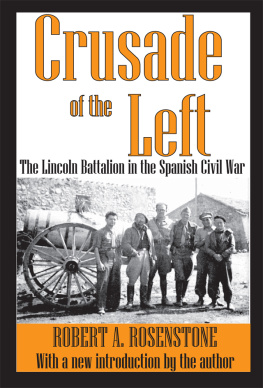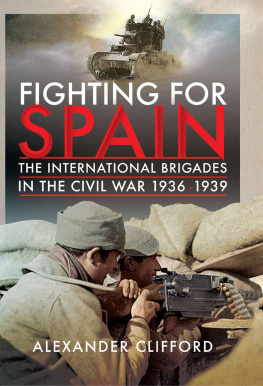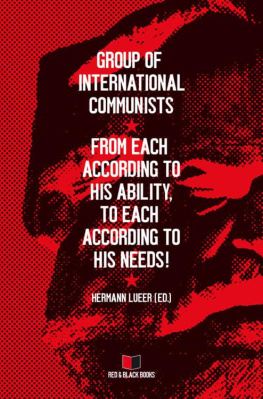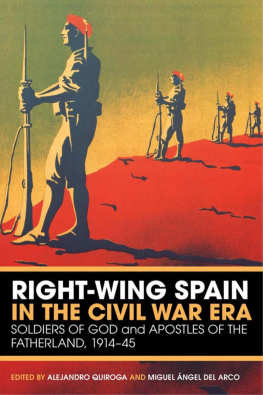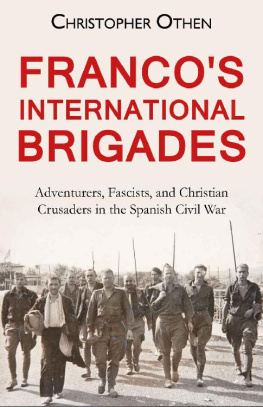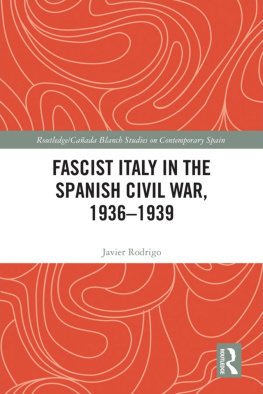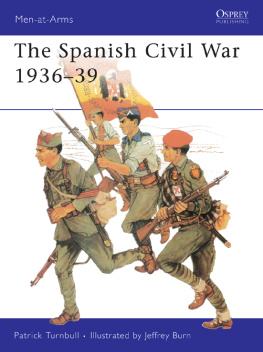Originally published in 1969 by Western Publishing Company, Inc.
Published 2009 by Transaction Publishers
Published 2017 by Routledge
2 Park Square, Milton Park, Abingdon, Oxon OX14 4RN
711 Third Avenue, New York, NY 10017, USA
Routledge is an imprint of the Taylor & Francis Group, an informa business
New material this edition copyright 2009 by Taylor & Francis.
All rights reserved. No part of this book may be reprinted or reproduced or utilised in any form or by any electronic, mechanical, or other means, now known or hereafter invented, including photocopying and recording, or in any information storage or retrieval system, without permission in writing from the publishers.
Notice:
Product or corporate names may be trademarks or registered trademarks, and are used only for identification and explanation without intent to infringe.
Library of Congress Catalog Number: 2009011449
Library of Congress Cataloging-in-Publication Data
Rosenstone, Robert A.
Crusade of the Left: the Lincoln Battalion in the Spanish Civil War /
Robert A. Rosenstone.
p. cm.
Originally published: New York: Pegasus, c1969.
Includes bibliographical references and index.
ISBN 978-1-4128-0997-9 (alk. paper)
1. Spain--History--Civil War, 1936-1939--Participation, American.
2. Spain. Ejrcito Popular de la Repblica. Abraham Lincoln Battalion.
3. Spain--History--Civil War, 1936-1939--Regimental histories. 4.
Americans--Spain--History--20th century. 5. Anti-fascist movements-
United States--History--20th century. 6. Anti-fascist movements--Spain-
History--20th century. I. Title.
DP269.47.A46R67 2009
946.081'40973--dc22
2009011449
ISBN 13: 978-1-4128-0997-9 (pbk)
Every historian knows - or should know - that like other cultural artifacts, any book s/he produces is inevitably marked by the tensions and issues not just of the past but also of the era during which it is written. This is true of Crusade of the Left, which began as a doctoral dissertation more than forty years ago and bears the marks of the Sixties, the decade in which it was conceived, researched, written, rewritten, and first published. As we knew then and understand even better now, those were momentous years, and whether you view them positively and negatively, it is clear that they helped to shape the subsequent political and social life of the United States (and much of Europe). I was a very minor player in that decade's events, speaking out at campus rallies and marching against the war in Vietnam, working at a local ghetto agency to try to help some black youngsters achieve high school equivalency degrees. My motivation in writing a history of the Americans who fought in the Spanish Civil War under the banner of the Abraham Lincoln Battalion seemed to go hand in hand with such activities. Not only did I find something personally stirring about this story of young Americans who crossed the Atlantic to risk their lives in what they saw as a struggle against the rising and militant ideology of fascism in Germany (or "Hitlerism" as Paul Preston, author of the most recent general history of the Spanish war has called itfor social justice they were not alone, but part of a long running American tradition of activism on the left.
To do research on the far left in 1963-64 was to enter a world of scholarship deeply shadowed by the Cold War. The Veterans of the Abraham Lincoln Brigade (VALB) - the men in Spain comprised only a battalion but this was inflated to a brigade by propagandists of both right and lefthad the dubious honor of holding down the first spot on the Attorney General's list of subversive organizations, and this alone made the subject seem more than a little suspect to a great many Americans. Responding to my letter of request for leads, the foremost historian of American socialism wrote to warn me off the topic, calling it wholly illegitimate because the Lincolns were all Communists or liars (he didn't specify which was worse). Some members of the UCLA history faculty tried to talk my doctoral adviser, the late George Mowry, a historian of progressivism, out of letting me undertake what they considered to be a dubious study. True to his progressive principles, Mowry told me if I could find appropriate original sources, he would back me all the way.
With a topic surrounded by such suspicion, and one only twenty-five years in the past, interviews with the participants seemed to be a potentially important source of information. When I contacted the VALB headquarters asking for help in meeting some of the men who had fought in Spain, I was subjected to a process that I can only describe as having to obtain a left-wing security clearance. Since many of the veterans were or once had been members of the Communist Party, and for that reason had been harassed at their jobs and in their lives by the FBI and other governmental agencies, their suspicion of outsiders wanting to ask questions seems justifiedor so I eventually came to understand. At first it seemed like an unreasonable objection. Here I was, a young historian wanting to tell their story to the world. Wouldn't they benefit from that?
Obtaining that clearance involved a certain amount of cloak and dagger stuff. An anonymous voice on the phone directed me to meet some men at an East Hollywood coffee shop at ten in the evening and to carry the Los Angeles Times open to the obituary page. The three provided me only their first names before subjecting me to what became a two-hour grilling. Who did I know? What had I done for the left? (This was 1963, and my membership in the NAACP drew a sneer from them.) What did I think about various issues surrounding U.S.-Soviet relations? I felt myself doing okay until the question about the Stalin-Hitler pact. A terrible sellout of principles, I said, echoing what I had learned in a modern history seminar. Wrong, they replied, going on to provide the old Communist line on the issue: it was a brilliant tactical maneuver to buy time for the Soviet Union to prepare for war with Germany.
Despite this apparent gaffe, I managed to obtain their approval and was sent along a sort of underground railway that took me from Los Angeles, to San Francisco, Chicago, Detroit, and New York, where I was given access to the VALB files in the New York headquarters (they weren't very illuminating). In the midst of this process, I realized that the organization was trying to shape my image of the battalion by putting me in touch solely with those who were the most loyal to the party line on the war, the ones who wished to present the most positive and glowing picture of the Lincolns to the world. My two-year period as a professional journalist helped me to get around this roadblock to some extent, for there are ways of asking questions during long interviews (some lasted five or six hours) that get people to talk about things they normally try to hide. But I didn't depend solely on my interviewing techniques to counter this problem. Once I recognized what was happening, I made a special effort to seek out Lincolns who had left the VALB for various ideological or personal reasons. Eventually I was able to find enough of these men (at least a third of my interviews) whose views helped to broaden and deepen my view of the Lincolns by providing a different and often more critical portrait of events and individuals.

